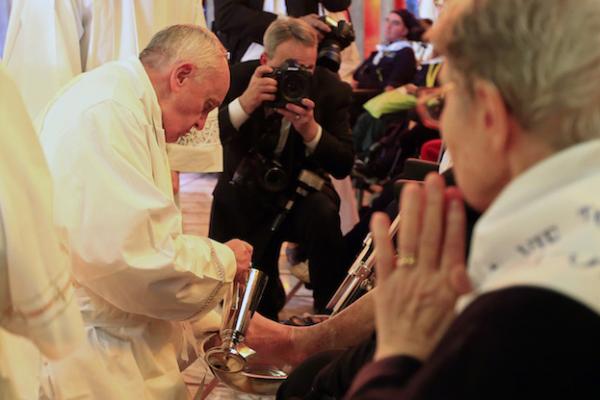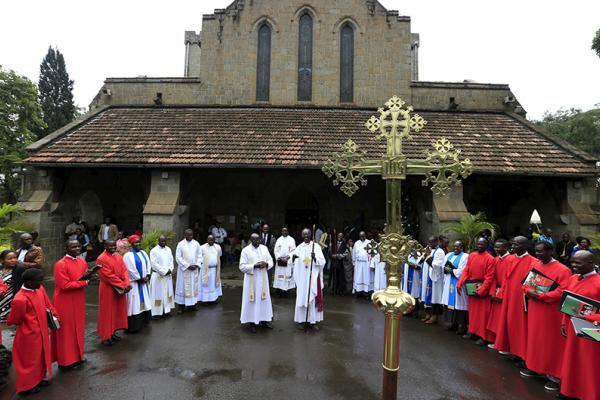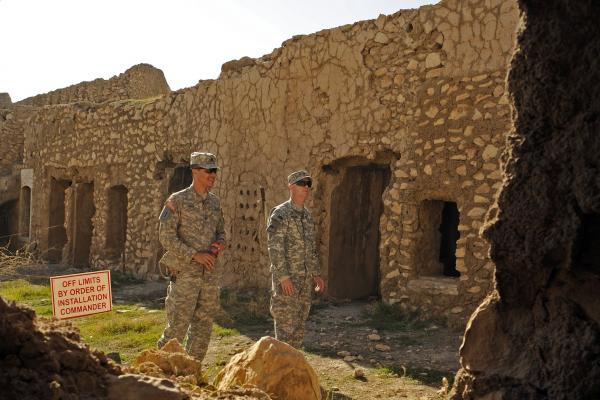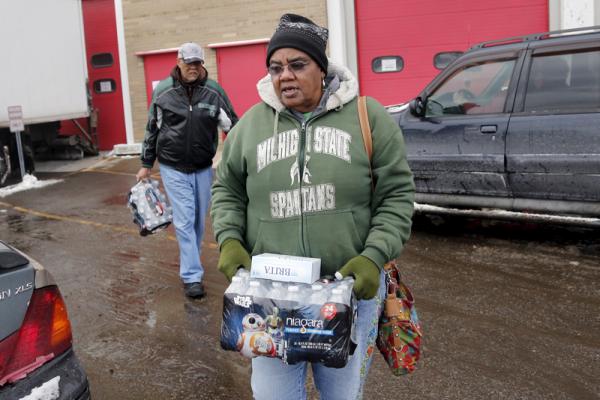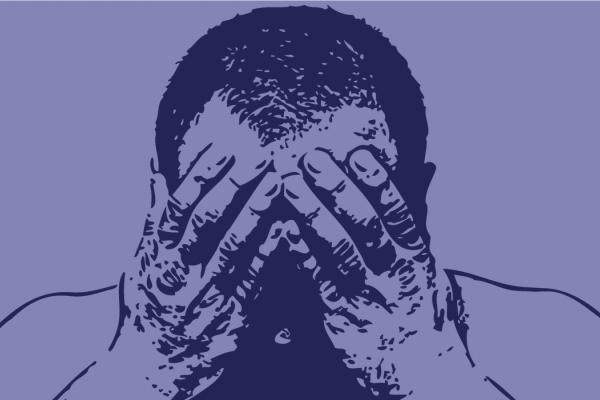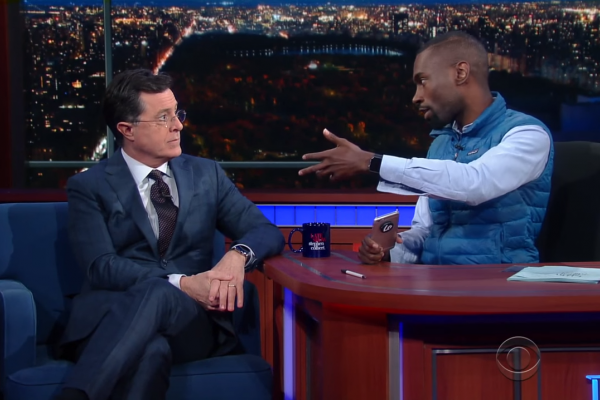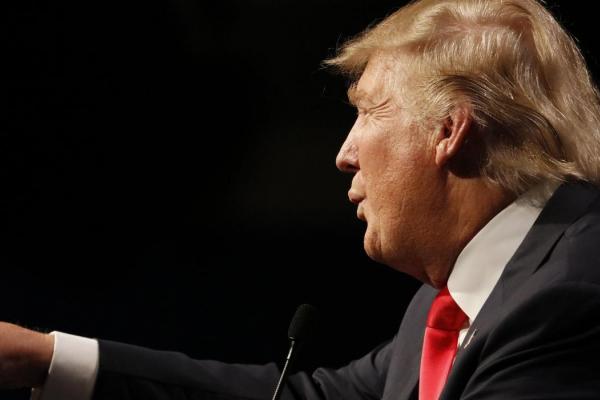Pope Francis has changed the rules so that a priest may wash the feet of women and others in the community and not just men, as church law had previously decreed. The change, announced Jan. 20, reflects Francis’ own groundbreaking gesture when, just a month after his election in 2013, he washed the feet of young people — including women and Muslims — at a youth detention center outside Rome.
“Are you challenging me to a Catholic throwdown?”
Thus commenced Stephen Colbert and Patricia Heaton’s Catholic-off on the Jan. 18 episode of the Late Show. The famously Catholic TV host wanted to give his guest a fighting chance though. So, he produced a family photo of Heaton’s family with approximately enough people to fill a village.
A Muslim man who shielded Christians after a passenger bus was ambushed by suspected al-Shabab militants is being saluted as a symbol of unity. Salah Farah, a schoolteacher, died Jan.18 in Nairobi, where he was airlifted after being shot in the arm and hip when he resisted militant demands that he identify Christians on the bus during the December attack.
Pope Francis is studying an invitation to visit the Grand Mosque of Rome — extended to him several days after his first visit to the city’s Great Synagogue. If he accepts, Francis would be the first pope to visit the mosque. He received the invitation on Jan. 20 during a short audience he gave to Muslim community leaders at the Vatican.
St. Elijah’s of Mosul, the oldest Christian monastery in Iraq, has been totally destroyed by ISIS.
Catholic Charities is giving out water and food. The Flint Jewish Federation is collecting water and water filters. And the Michigan Muslim Community Council has distributed more than 120,000 bottles of clean water for Flint, Mich. But these faith organizations are also focused on a longer-term goal: to make sure the impoverished city, where President Obama last weekend declared a state of emergency over its poisoned water, is never so neglected again.
People of color in the United States, particularly young black men, are burdened with a presumption of guilt and dangerousness. Some version of what happened to me has been unfairly experienced by hundreds of thousands of black and brown people throughout this country. As a consequence of our nation’s historical failure to address the legacy of racial inequality, the presumption of guilt and the racial narrative that created it have significantly shaped every institution in American society, especially our criminal justice system.
A California atheist who once argued against the Pledge of Allegiance before the Supreme Court has launched a federal legal challenge to the phrase “In God We Trust” on American currency. Michael Newdow , 62, a Sacramento-based emergency-room doctor, filed a federal lawsuit seeking to strip reference to God from paper money and coins in an Ohio court earlier this month. Newdow claims the motto is a violation of his religious freedom.
WATCH: Black Lives Matter Activist DeRay Mckesson Helps Stephen Colbert Confront His White Privilege
“Baby steps.”
That’s the amount of progress leading Black Lives Matter activist DeRay Mckesson agreed Stephen Colbert made toward overturning his white privilege when the two sat down on Martin Luther King Day to discuss racism.
The interview got personal when Colbert switched seats with DeRay, letting the activist ask the questions. Colbert’s responses are clearly well-meaning, but also genuinely awkward. White privilege is tough for white people, even (perhaps especially) for renowned television hosts.
“The ultimate tragedy is not the oppression and cruelty by the bad people but the silence over that by the good people.”-Martin Luther King Jr.
This week at Liberty University, Donald Trump was given a platform to address evangelicals. Much has been written on why Donald Trump is patently unqualified to be speaking on a day where we celebrate the lasting impact of Martin Luther King Jr.’s fight against oppression. His racist and xenophobic policy proposals include mass deportations, barring Muslims from travelling to the United States, and creating a registry to monitor Muslims in America. Lending legitimacy to him is entirely contradictory to the life and mission of Martin Luther King Jr.
